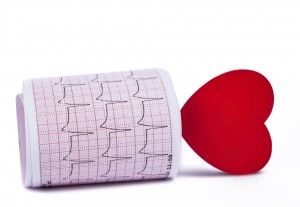Women, Weight and Heart Risks
 February is American Heart Week, with the first week focusing particularly on women’s hearts. Heart conditions are most often associated with men but, in truth, women are at just as much risk as men, with heart disease being American women’s biggest cause of death.
February is American Heart Week, with the first week focusing particularly on women’s hearts. Heart conditions are most often associated with men but, in truth, women are at just as much risk as men, with heart disease being American women’s biggest cause of death.
The BMI scale is used to determine an individual’s weight and places them on the BMI scale. 58% of American Women are overweight or obese with a BMI of over 25, meaning that they are at a much greater risk of developing a heart condition.
What Causes Obesity?
Most people are overweight because they take in more calories, in the form of food and drink, than they burn off through physical activity. When more calories are eaten than burned off, the extra calories are stored as fat. Metabolic rate and genetics also make someone more, or less, likely to be obese. Age also makes a difference as our bodies need less energy as we age, as our metabolisms slow down. Another factor is some illnesses and some medication taken to control illness.
 How Does Obesity Affect the Heart?
How Does Obesity Affect the Heart?
Overweight or obese women are more likely to suffer from heart damage than women who are of a healthy weight. A study following nearly 6,000 participants (54% of whom were women), showed that overweight people with a BMI of 25 to 29.9 were 34% more likely to develop heart failure and those with a BMI of 30 or over are more than twice as likely to develop heart failure.
For every one point rise in BMI, women were 7% more at risk of heart failure (5% for men). It’s not just about BMI though, waist hip ratio makes a difference too. Another study found that a WHR of over 35 inches almost doubled the risk of heart failure in women.
If you are overweight or have a WHR of 35, your heart has to work harder to get blood to the extra tissue in your body. The more fat you carry, the harder your heart has to work and as the heart works harder, the main chamber can become thick and expand. Over a period of time, these changes can affect the heart’s ability to fill with and pump out blood. The longer you are overweight, the more strain is put on your heart, starting the process of heart failure.
Obesity and other Risk Factors
It is not just the excess weight that can put you at a higher risk of heart disease. Obesity can cause a number of other risk factors that can cause heart damage. These include:
High Cholesterol: Too much fat affects the chemical breakdown of food, raising bad cholesterol (LDL) and lowering good cholesterol (HDL). This bad cholesterol can cause a build-up of plaque in blood vessels. When plaque accumulates in the vessels of the heart it can cause damage to the heart muscles.
Sleep Apnea: Obesity is the primary cause of sleep apnea. Sleep apnea is a condition where you regularly stop breathing for 10 seconds or more while you are sleeping. As a result blood pressure fluctuates repeatedly throughout the night. This and the reduced oxygen supply to the heart can cause stress to the heart.
Other obesity-related risk factors for heart disease include high blood pressure and diabetes.
It’s Never Too Late
If you are overweight or obese it is never too late to lose weight and improve your health. For every BMI point you lose you will be 7% less likely to develop a heart condition. At Weight Loss Surgery Mexico we offer a wide range of low cost weight loss surgery packages, from gastric lap-band, to gastric bypass to gastric sleeve plication surgery. We take the time to get to know each prospective patient so that we can recommend the safest and most successful surgery for them.
At Weight Loss Mexico we don’t see weight loss surgery as a cosmetic procedure. Weight loss surgery is a medical intervention that enables our patients to improve their health outcomes and live life to the full, free from the risk, discomfort and worry that comes with obesity.
For more information on how weight loss surgery could help you, contact us.


